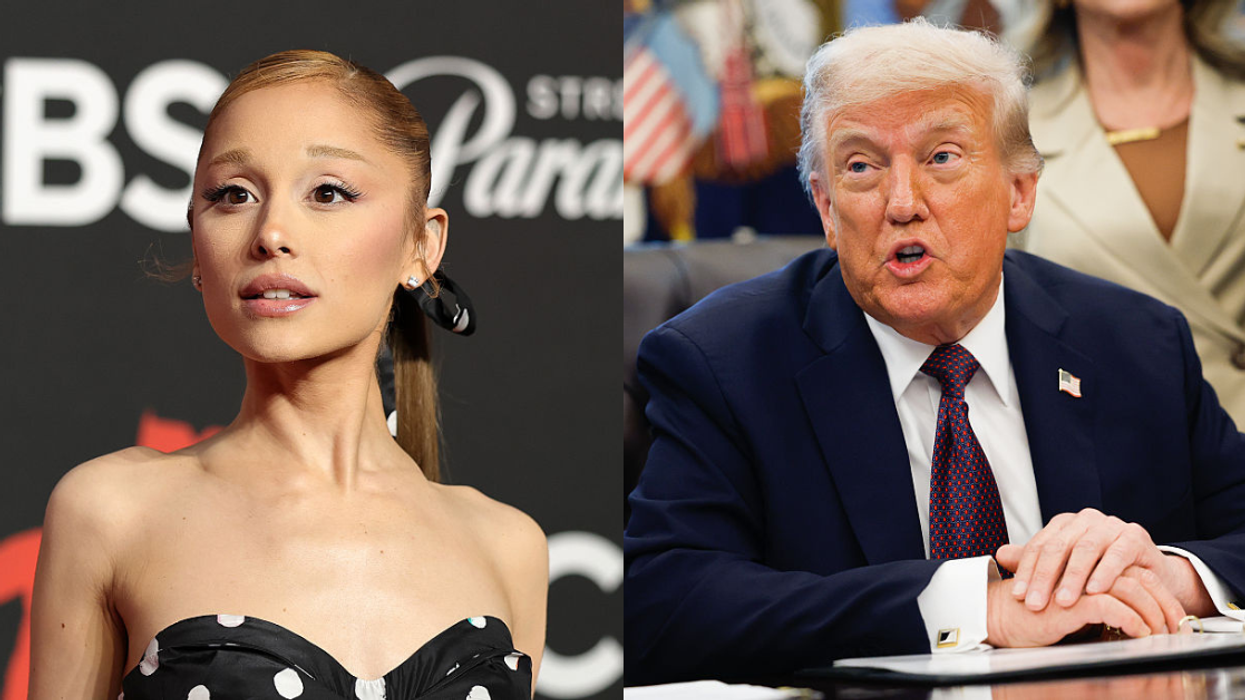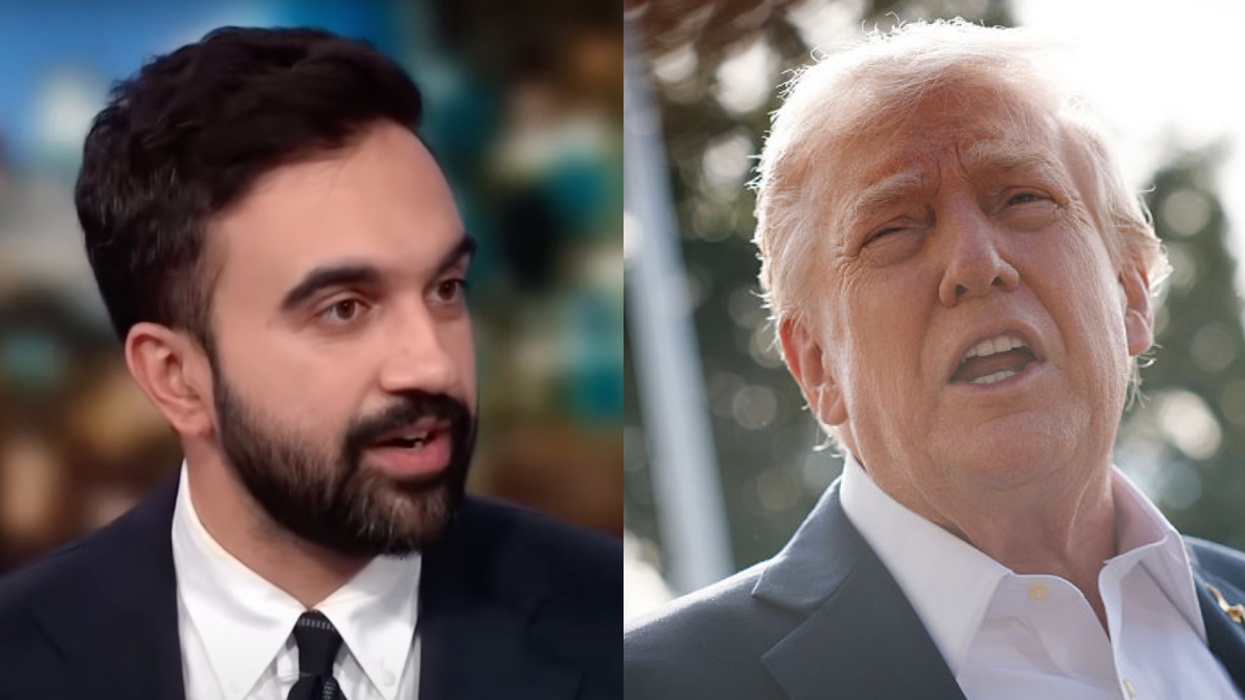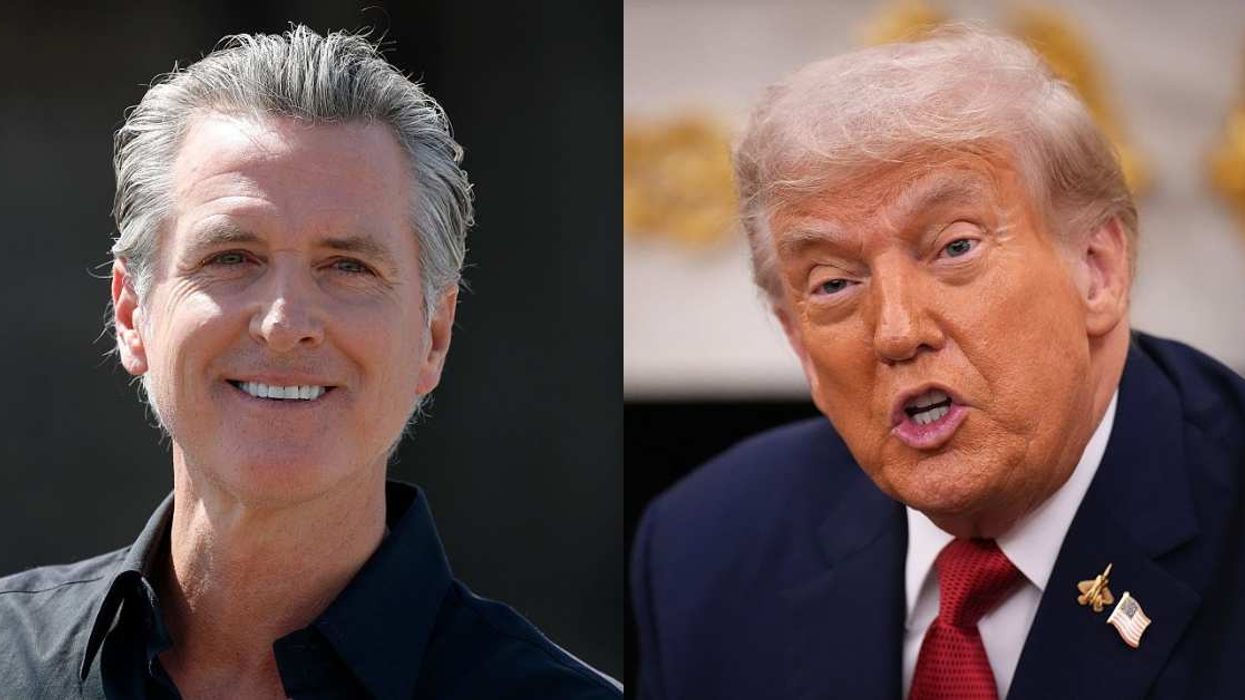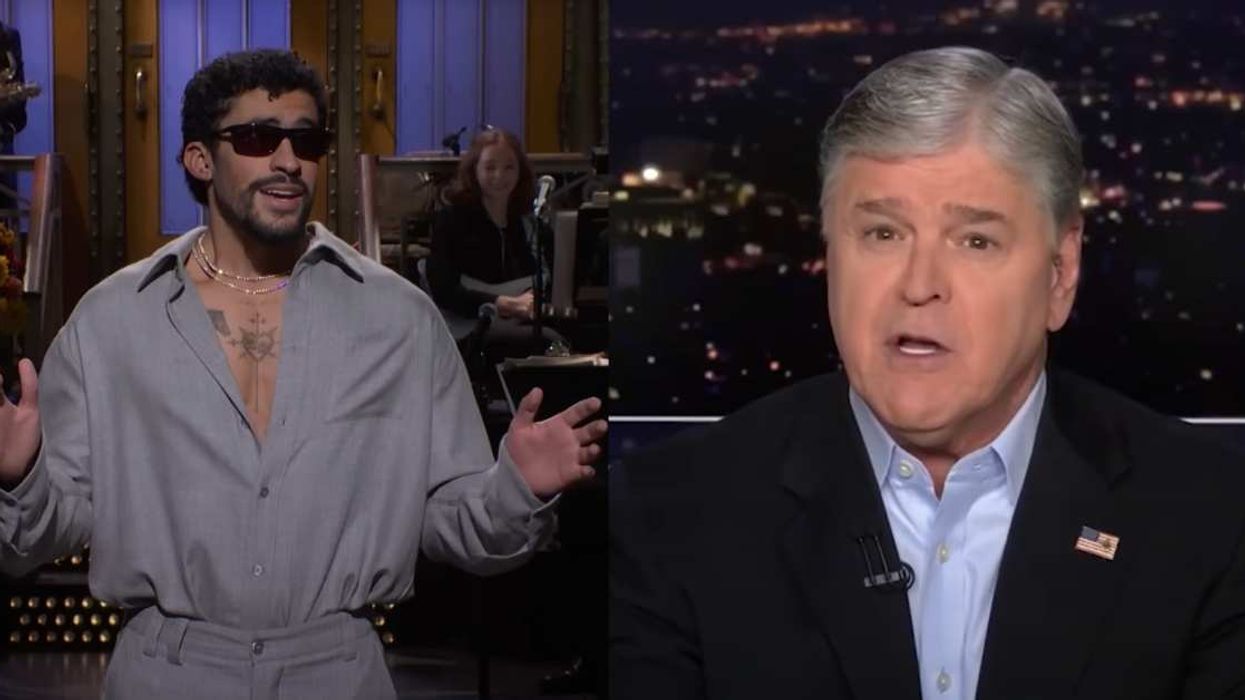President Donald Trump is now suggesting that his presidency should be extended by two years as repayment for the Russia investigation, which he still maintains was a "collusion delusion" and a "hoax."
Trump got the idea from Jerry Falwell Jr., whom Trump retweeted on Sunday afternoon.
"After the best week ever for @realDonaldTrump - no obstruction, no collusion, NYT admits @BarackObama did spy on his campaign, & the economy is soaring," Falwell wrote. "I now support reparations-Trump should have 2 yrs added to his 1st term as payback for time stolen by this corrupt failed coup."
On Sunday night, Trump tweeted that he has had the "greatest ECONOMY and most successful first two years of any President in history," even though "they have stolen two years of my (our) Presidency (Collusion Delusion)."
"The Witch Hunt is over but we will never forget," he added. "MAKE AMERICA GREAT AGAIN!"
At first glance, this is all utterly ridiculous.
This is crazy, right?
Under normal circumstances, yeah, nuts. But this is not the first time that Trump has tested the idea of disregarding the presidential term limits mandated in the Constitution.
Last year, Trump expressed admiration for Chinese President Xi Jinping's successfully finagling a way to remain in office for the rest of his life.
“He’s now president for life,” Trump said of Xi. “President for life. No, he’s great. And look, he was able to do that. I think it’s great. Maybe we’ll have to give that a shot someday.”
While some insisted that the president was joking, Trump's praise of Xi's power grab is part of a recurring pattern of infatuation for some of the world's most brutal autocrats. It was also part of an insidious ongoing strategy of covertly gauging public opinion on how much he can get away with.
Concerns over how far Trump will stoop to maintain power prompted his former attorney Michael Cohen to issue a warning during his testimony before the House Committee on Oversight and Reform in February.
"Indeed, given my experience working for Mr. Trump, I fear that if he loses the election in 2020 that there will never be a peaceful transition of power, and this is why I agreed to appear before you today," Cohen said.
And last week, House Speaker Nancy Pelosi (D-CA) told Glenn Thrush of The New York Times that unless Democrats are able to crush Trump and the Republicans in the 2020 election, he may refuse to give up power.
“We have to inoculate against that, we have to be prepared for that,” Pelosi said. “If we win by four seats, by a thousand votes each, he’s not going to respect the election."
Trump "would poison the public mind. He would challenge each of the races; he would say you can’t seat these people,” she added. “We had to win. Imagine if we hadn’t won — oh, don’t even imagine. So, as we go forward, we have to have the same approach.”
On social media, there is growing angst about Trump's unquenchable thirst for power.
Indeed, the growing worry about how Trump would handle a loss next year are not unwarranted. During the final presidential debate against Democrat Hillary Clinton in October 2016, Trump would not say if he would accept the results of the election, should he lose.
"I will look at it at the time," he said, having spent much of the campaign claiming that the election had been "rigged" against him. "I will keep you in suspense," he added.
Less than a week later, Trump wrote on Twitter:
"The election is absolutely being rigged by the dishonest and distorted media pushing Crooked Hillary - but also at many polling places - SAD"
Then, a week before the election, Trump tweeted without evidence that there was "vote flipping at the voting booths in Texas. People are not happy. BIG lines. What is going on?"
Trump trounced Clinton in Texas with 59 percent of the vote. Still, his refusal to accept the results of an election he won - like when he claimed that he would have won the popular vote had it not been for millions of people illegally casting ballots (this was demonstrably untrue) - suggests that he will not go quietly if he loses.
Granted, the Constitution explicitly states that a president's term ends at noon on January 20. But with a Republican Party hell-bent on bolstering his dictatorial tendencies, an attorney general who has shown nothing but contempt for the rule of law and co-governance with Congress, and the courts stacked with sympathetic judges, anything less than a Democratic electoral tsunami a-la 2018 may trigger an unprecedented constitutional crisis.
No one is coming to save us.








 @homefood_usa/TikTok
@homefood_usa/TikTok @homefood_usa/TikTok
@homefood_usa/TikTok @homefood_usa/TikTok
@homefood_usa/TikTok @homefood_usa/TikTok
@homefood_usa/TikTok @homefood_usa/TikTok
@homefood_usa/TikTok @homefood_usa/TikTok
@homefood_usa/TikTok @homefood_usa/TikTok
@homefood_usa/TikTok @homefood_usa/TikTok
@homefood_usa/TikTok @homefood_usa/TikTok
@homefood_usa/TikTok @homefood_usa/TikTok
@homefood_usa/TikTok @homefood_usa/TikTok
@homefood_usa/TikTok @homefood_usa/TikTok
@homefood_usa/TikTok @homefood_usa/TikTok
@homefood_usa/TikTok @homefood_usa/TikTok
@homefood_usa/TikTok @sarcastic_sunflower76/Threads
@sarcastic_sunflower76/Threads @sarcastic_sunflower76/Threads
@sarcastic_sunflower76/Threads







 Friends Tv GIF
Friends Tv GIF  Turning Away Doom Patrol GIF by HBO Max
Turning Away Doom Patrol GIF by HBO Max  Announce Listen Up GIF
Announce Listen Up GIF  Scooby Doo
Scooby Doo 
 @jessetyler/Instagram
@jessetyler/Instagram @
@ @traveling_gal_712/Instagram
@traveling_gal_712/Instagram @kamillaedwards/Instagram
@kamillaedwards/Instagram @pastrywithjenn/Instagram
@pastrywithjenn/Instagram @jguttler/Instagram
@jguttler/Instagram @qurarshah/Instagram
@qurarshah/Instagram @ruthbl921/Instagram
@ruthbl921/Instagram @acsanti/Instagram
@acsanti/Instagram @aulanirenee/Instagram
@aulanirenee/Instagram @x.seymaaa.x/Instagram
@x.seymaaa.x/Instagram @morganpiriou/Instagram
@morganpiriou/Instagram @modernfamily/Instagram
@modernfamily/Instagram